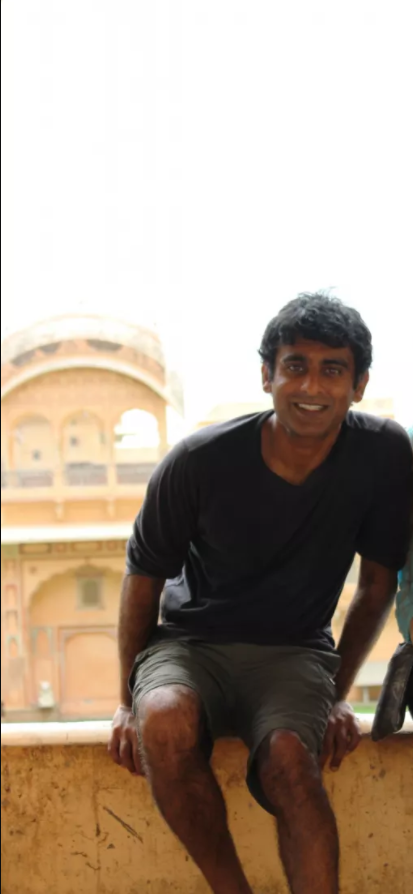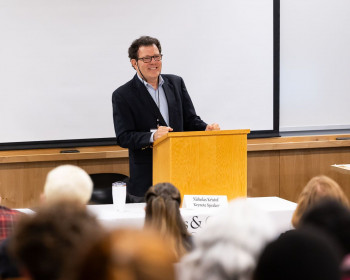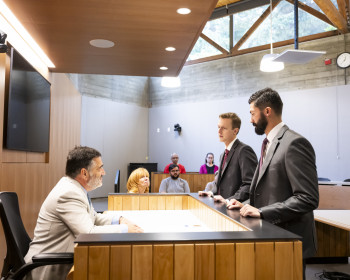Profile: An Externship in India
Open gallery

This is the first installment in a series of stories featuring some of the over 100 Lewis & Clark law students who completed summer externships in 2015.
This summer, second year law student, Raj Reddy, had an experience many law students dream of as he externed for the Human Rights Law Network (HRLN) in New Dehli, India. Reddy, who is pursuing animal law, was among dozens of other HRLN interns and externs from the U.S., Canada, Europe, Australia and India.
Applicants for the HRLN externship must provide a resume and answer questions about their interests in human rights work, their international experiences, and experiences with different cultures. The application is relatively straightforward, while gaining the required employment visa is more challenging and can take up to a couple months.
We asked Reddy to share his experiences at the HRLN. Here are the answers to our questions:
Q: How did you learn of the externship at the HRLN?
RR: I discovered the HRLN externship opportunity while searching through the Career & Professional Development Center’s job and externship database back in December and completed my application over winter break.
Q: Why were you interested in applying for it?
RR: While my focus at Lewis & Clark is animal law, human rights law represents an area that I wanted to explore before I graduated. I wanted to be introduced to a different legal framework and to understand how it worked.
Q: What type of work did you do in your position and what responsibilities did you have?
RR: I was lucky enough to experience a balance of field work and legal drafting. My main project was to visit four Delhi slums and interview waste collectors, commonly known as rag-pickers. Their livelihoods had been put in jeopardy by the government’s proposed solid waste management rules. In essence, the public interest litigation I was putting together was intended to ensure that the informal sector was awarded first right to waste. Other demands that the public interest litigation included were additional safeguards to protect workers’ health and increase their income.
Q: What are the most significant, or rewarding, things you’ve been able to work on?
RR: My most rewarding experience had to have been the waste collector public interest litigation project. Getting to meet several of the workers whom we were advocating on behalf of made me feel more invested in and more devoted to the legal drafting work I was doing in the office on most days. Again, the field work was difficult and demanding, but it gave me a fuller picture of who our clients were and why the case was important to them.
Q: Have you, or are you planning to, participate in any other externships or practical skills while in law school?
RR: I was a source checker for the Animal Law Review in my first year, and this year I’ll be the journal’s Managing Editor. I will also be taking the animal law legislative drafting and lobbying course this fall. I hope to add to my moot court experience by taking two other moot courts during my 3L year, when I also plan to enroll in the animal law clinic.
Q: What have you been doing in your spare time this summer?
RR: Although my externship took up most of my days, I was able to carve out time to do some creative writing and to travel around India and Nepal. Lewis & Clark also happened to offer an online course on the law of humane science, and so for two weeks, I was taking that course as well. In all, it was a very enriching and productive summer.
Learn more about externships and international opportunities at Lewis & Clark Law School.
Law Communications is located in room 304 of Legal Research Center (LRC) on the law Campus.
MSC: 51
email jasbury@lclark.edu
voice 503-768-6605
Cell: 626-676-7923
Assistant Dean,
Communications and External Relations, Law School
Judy Asbury
Law Communications
Lewis & Clark Law School
10101 S. Terwilliger Boulevard MSC 51
Portland OR 97219

